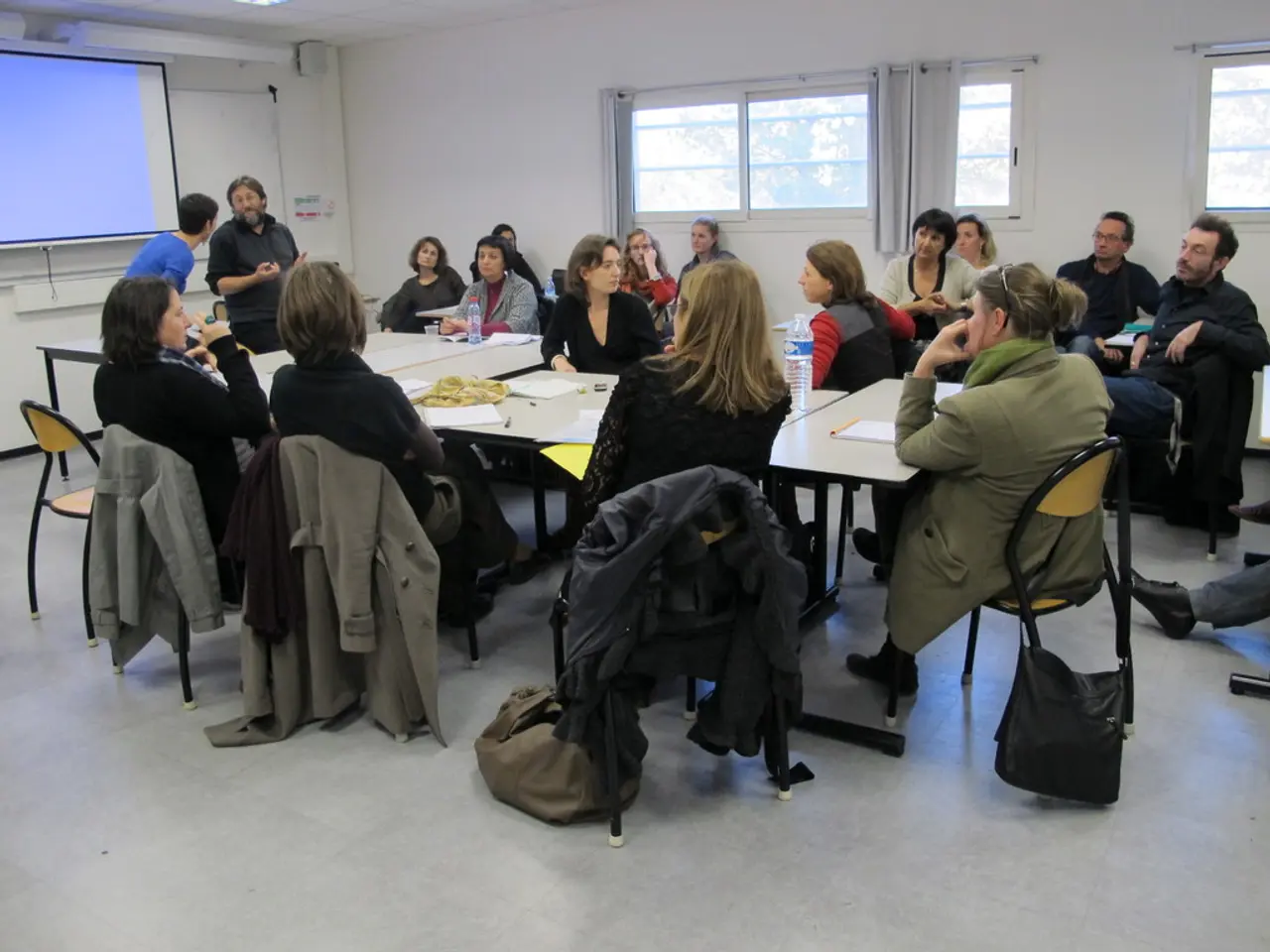Impact of Borderline Personality Disorder on Interpersonal Relations
In the realm of mental health, understanding and managing Borderline Personality Disorder (BPD) is crucial. This condition, a type of personality disorder, determines a person's way of thinking, relating to others, and processing emotions.
People with BPD often experience intense sensitivity to perceived criticism, alternating idealization and devaluation of others, and fears of abandonment, which complicate relationship dynamics.
Effective strategies for managing BPD in relationships focus on emotional regulation, clear communication, and establishing consistent boundaries. Partners can benefit from using Dialectical Behavior Therapy (DBT) techniques and protective measures such as:
- During emotional crises, partners should avoid reasoning or arguing, instead offering reassurance of love and commitment while setting safe boundaries by briefly separating themselves to de-escalate tensions.
- Establishing and agreeing in advance on a plan for handling emotional flooding helps create trust and reduces the push-pull dynamic characteristic of BPD relationships.
- Communication strategies emphasize validating emotions without endorsing harmful behavior, maintaining calm supportive language, and avoiding confrontations during heightened emotional states.
- Family and partners benefit from education about BPD to foster empathy, reduce blame, and promote healthier interactions.
- Setting clear, consistent boundaries with agreed consequences and practicing self-care are vital for supporting loved ones with BPD.
Regarding social media interactions, individuals with BPD may be particularly vulnerable to emotional dysregulation triggered by online communication. Social media can amplify feelings of rejection, idealization, or abandonment linked to their condition. Although specific studies directly linking BPD and social media are limited, general research on mental health and social media shows:
- Social media use can exacerbate feelings of loneliness, depression, and emotional overwhelm, especially when engagement triggers negative social comparisons or rejection sensitivity.
- Self-monitoring and limiting social media use have been shown to reduce loneliness and depression, suggesting that individuals challenged by emotional regulation—such as those with BPD—may benefit from mindful social media consumption.
People with BPD are more likely to unfriend or block other social media users, which may be an attempt to distance themselves from abusive individuals. They may also perceive rejection more strongly than those without the condition, leading to feelings of regret on social media, often stemming from not receiving the desired attention or type of attention, or from impulsive actions.
If a person is experiencing suicidal thoughts or self-harm, they should seek immediate medical attention. Medications such as antipsychotics, antidepressants, and mood stabilizers are not very effective in treating the symptoms of BPD.
Environmental factors such as childhood abuse, growing up without a mother, or with substance-misusing parents can contribute to the development of BPD. Traditional anxiety medication does not treat the type of anxiety that a person with BPD experiences about being alone.
Seeking help for mental health conditions, including BPD, is just as important as seeking help for physical health conditions. If symptoms are significantly impacting a person's ability to work, enjoy their lives, and form relationships, they should consult a doctor.
In summary, managing BPD in relationships requires structured emotional support, predictable boundaries, and therapeutic interventions like DBT, while mindful and moderated social media use may help mitigate additional emotional stressors associated with the condition.
- The predictable boundaries established in relationships can help manage symptoms of Borderline Personality Disorder (BPD), serving as a crucial aspect of relationship dynamics.
- In the realm of health-and-wellness, particularly mental health, understanding and managing BPD is vital due to its impact on a person's emotional processing, relationships, and way of thinking.
- Research suggests that excessive social media use could exacerbate feelings of depression and emotional overwhelm in individuals with BPD, necessitating mindful consumption.
- Seeking professional help for mental health conditions, including BPD, is advisable, as it is equally important as seeking help for physical health conditions when symptoms significantly impair a person's ability to enjoy life, work, and maintain relationships.




